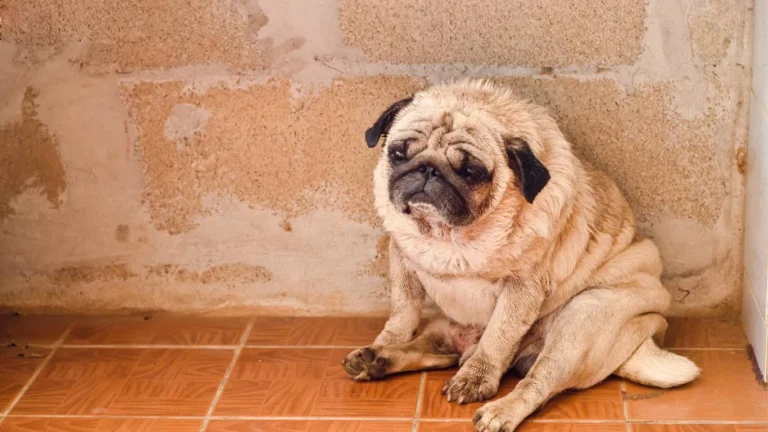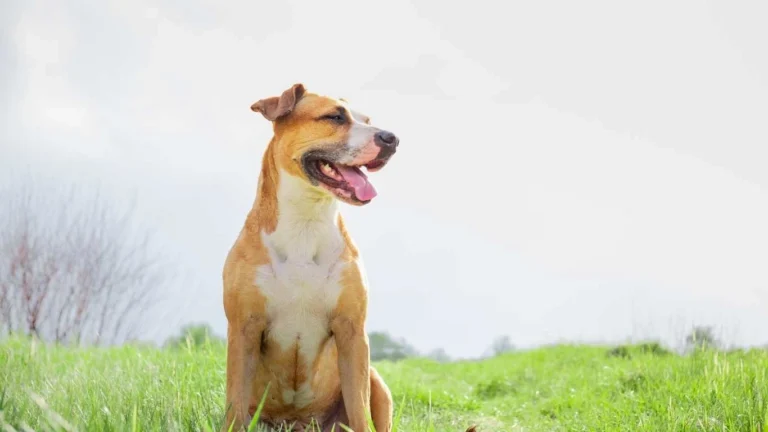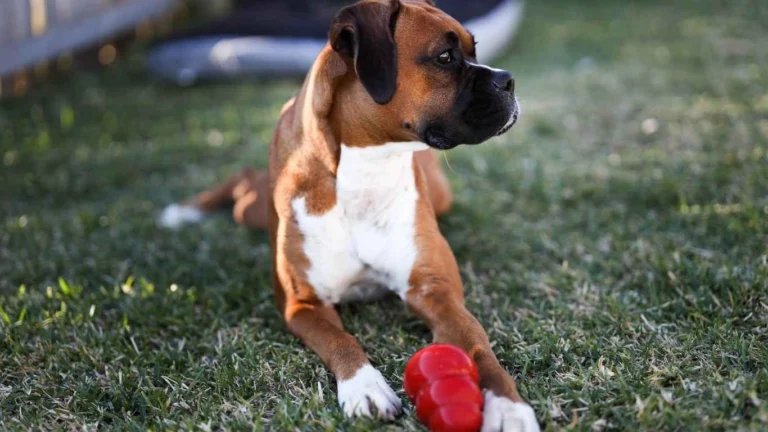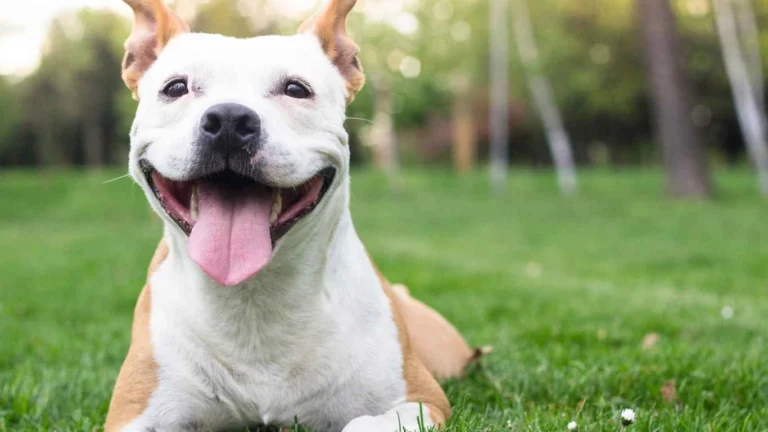Best Ways to Prevent Dog Stomach Bloating – Simple Yet Effective Tips for Your Pup
As a veterinary assistant with a particular interest in pet nutrition, one of the most common concerns I hear from dog owners is about stomach bloating. This issue, though often overlooked, can be life-threatening if not addressed properly. Bloating, or gastric dilatation-volvulus (GDV), occurs when a dog’s stomach fills with gas, food, or fluid, causing it to expand and twist. If you’ve noticed your dog looking uncomfortable, lethargic, or even having difficulty breathing, there’s a chance they could be experiencing bloating. But here’s the good news—there are many ways to prevent dog stomach bloating from happening in the first place. In this article, we’ll dive into the best ways to prevent dog stomach bloating, drawing on both professional knowledge and my hands-on experience in veterinary care.
Understanding the Risk Factors for Dog Stomach Bloating
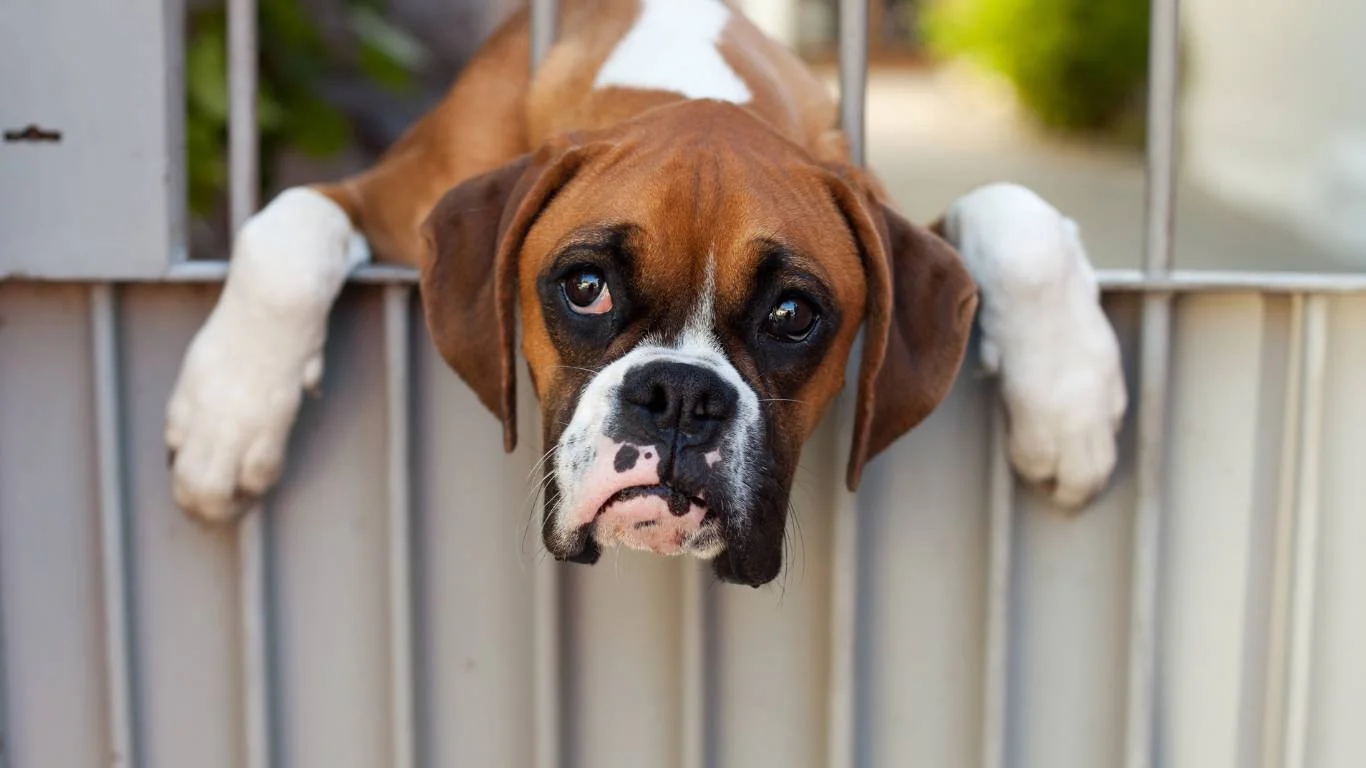
Before we dive into prevention, it’s important to understand what causes stomach bloating in dogs and which dogs are more at risk. I’ve seen firsthand how certain breeds, dog sizes, and even lifestyle factors play a huge role in the development of this condition.
Breed and Size Considerations
Some breeds are more prone to bloating due to their body structure. Dogs with deep, narrow chests—like Great Danes, Doberman Pinschers, and Boxers—are at higher risk. These breeds have more room for their stomachs to shift and twist, leading to an increased chance of GDV. On the other hand, smaller dogs are less likely to experience this condition but are not entirely immune.
If you own a breed that’s more susceptible to bloating, it’s extra important to be proactive about preventing the condition. I’ve worked with pet parents of these breeds and helped them develop strategies to keep their dogs happy and healthy.
Age and Health Factors
Age also plays a significant role. Older dogs, especially those over the age of 7, are more likely to develop bloating due to weakened muscle tone and other age-related factors. Additionally, dogs that have previously experienced bloating are at an even higher risk of it recurring. This makes preventative measures even more crucial in older or high-risk dogs.
How to Prevent Dog Stomach Bloating: The Best Ways
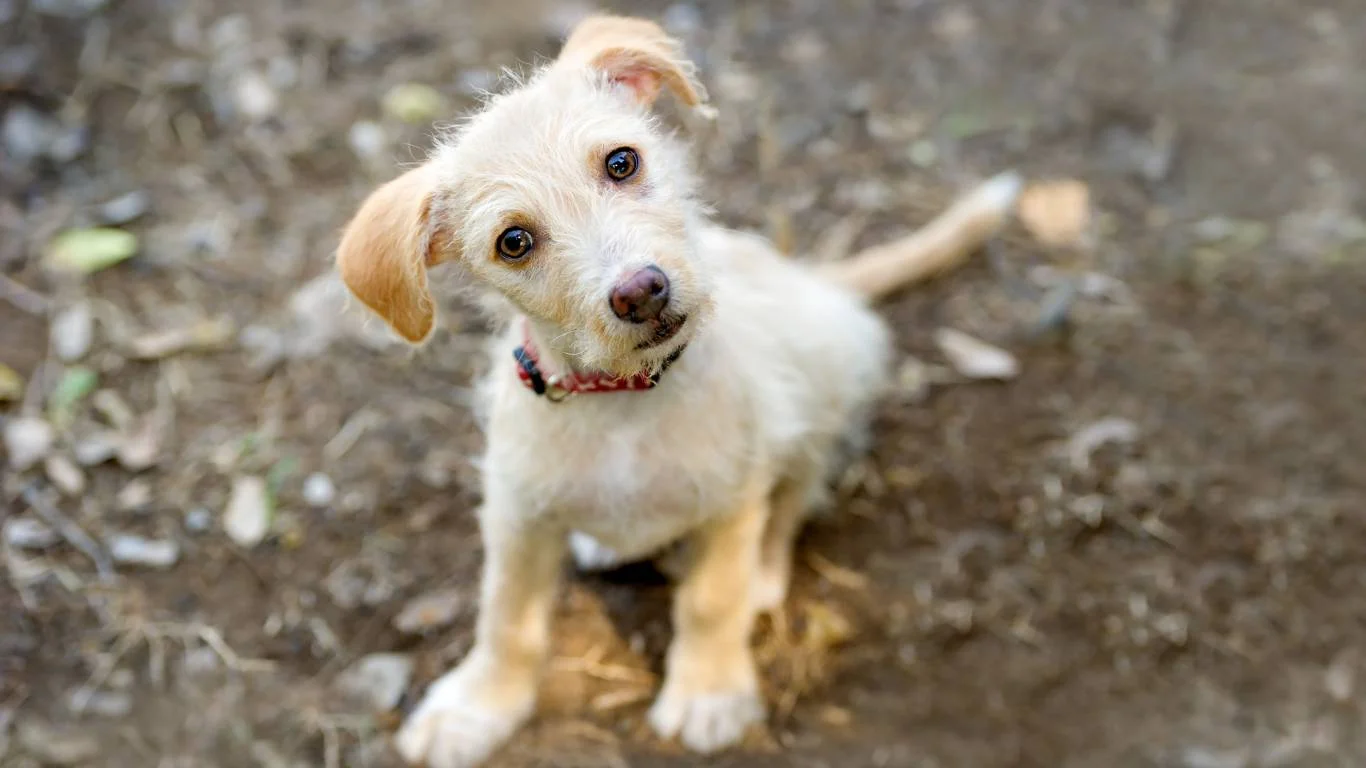
Now that we know a bit more about the causes and risk factors, let’s talk about the best ways to prevent dog stomach bloating. Based on my experience and what I’ve learned through working alongside veterinarians, there are several practical steps that can help minimize the risk. Some of these steps are simple lifestyle changes, while others may involve more technical interventions. Let’s explore them one by one.
1. Modify Feeding Habits
The way your dog eats plays a significant role in preventing bloating. One of the most common reasons dogs experience bloating is by eating too quickly, causing them to swallow air along with their food. This can lead to an excessive build-up of gas in the stomach, which increases the risk of bloating.
Solution: Slow down your dog’s eating habits. You can do this in several ways:
- Use a slow feeder bowl: These bowls are designed with ridges or obstacles that force your dog to eat more slowly.
- Consider puzzle feeders: These require your dog to work for their food, which naturally slows down their eating pace.
- Feed smaller, more frequent meals: Instead of one or two large meals, break your dog’s daily food intake into smaller portions throughout the day.
In my experience, dogs that eat too fast often show signs of bloating after mealtime. By slowing them down, you can prevent this from happening and promote better digestion.
2. Avoid Strenuous Activity After Meals
Just like humans, dogs can experience digestive distress if they engage in heavy activity too soon after eating. After a meal, your dog’s stomach is actively working to process food, and excessive movement can interfere with this process.
Solution: Allow your dog at least 30 minutes to an hour of rest after meals before going on walks or engaging in playtime. I’ve seen dogs that would run around the yard right after eating, and in many cases, they ended up experiencing discomfort or bloating later on. If you’ve got an energetic dog who’s eager to get outside, try taking them for a light walk or short potty break instead of a full-on play session.
3. Choose the Right Diet

The type of food you feed your dog can have a big impact on their digestive health. Some foods may be more likely to contribute to bloating, especially if they are high in fillers or artificial ingredients. Dogs with sensitive stomachs may experience bloating more frequently than those with stronger digestive systems.
Solution: Choose a high-quality dog food with easily digestible ingredients. Avoid foods with excessive amounts of grains, by-products, or artificial additives. Look for foods that are designed to promote gut health, often marked as “sensitive stomach” or “digestive care” formulas. I’ve had great success recommending these diets to clients with dogs that are more prone to digestive issues.
Monitoring for Early Signs of Bloating
While prevention is key, it’s also important to know how to spot the early signs of bloating, so you can act quickly if needed. The earlier bloating is identified, the easier it is to treat and prevent further complications. If you notice your dog showing signs of restlessness, drooling excessively, or trying to vomit without producing anything, these may be early warning signs of bloating.
In my career, I’ve found that pet parents who are aware of these signs are often able to intervene more quickly, saving their dogs from severe complications. Trust your gut as an owner—if something feels off, don’t hesitate to call your vet.
Understanding the Importance of Regular Vet Check-ups

One of the most important steps in preventing stomach bloating in dogs is regular veterinary care. I cannot stress this enough—having your dog checked by a vet regularly helps catch underlying issues that might make bloating more likely, such as food sensitivities, a weak digestive system, or even early signs of gastric issues. I’ve seen clients who came in with dogs showing subtle signs of bloating—things like frequent burping or changes in appetite—that they’d written off as “just a phase.” In many of those cases, a simple check-up led to early diagnosis, which allowed for much easier treatment.
In addition to monitoring for bloating, regular vet visits can help you develop a tailored plan to keep your dog’s digestive system in tip-top shape. Your vet can recommend the best food, supplements, or lifestyle changes that could work wonders for preventing bloating in the long run.
How Regular Check-ups Can Help Prevent Bloating
Here’s how regular visits to the vet can make a huge difference:
- Early detection of digestive issues: If your dog has a tendency to suffer from digestive upset, your vet can catch the signs early and help you address them before they turn into full-blown bloating.
- Tailored feeding plans: Not all dogs are the same when it comes to food sensitivities. A vet can help pinpoint what works best for your dog’s unique needs, helping prevent digestive distress.
- Monitoring for underlying health conditions: Bloating can sometimes be a secondary symptom of a more serious issue, like an infection or internal blockage. Regular check-ups help ensure these are caught early.
If you’re ever unsure about the symptoms your dog is showing, don’t hesitate to book that vet visit. Trust me, it’s always better to be safe than sorry when it comes to your furry friend’s health.
The Role of Supplements in Preventing Dog Stomach Bloating

Aside from diet, supplements can also play an important role in preventing stomach bloating in dogs. I’ve worked with a lot of pet owners who have seen great results from adding probiotics, digestive enzymes, and even certain herbs to their dog’s daily routine. These can help promote a healthier gut, making it easier for your dog’s digestive system to handle the food they consume without causing any discomfort or bloating.
Probiotics for Gut Health
Probiotics are live bacteria that are beneficial for your dog’s digestive system. They help balance out the good and bad bacteria in the gut, ensuring that your dog’s stomach functions as it should. I’ve often recommended probiotics to clients with dogs that have sensitive stomachs or those prone to bloating, and many owners have seen a noticeable improvement in their dog’s digestion.
Solution: Consider adding a high-quality probiotic supplement to your dog’s diet. They come in many forms—pills, powders, or even treats—so you can find one that works best for your dog. If you’re unsure which one to choose, ask your vet for a recommendation tailored to your dog’s specific needs.
Digestive Enzymes to Aid Digestion
Digestive enzymes are another great option for dogs that struggle with bloating. These enzymes help break down food more efficiently, reducing the chances of undigested food sitting in your dog’s stomach for too long and causing bloating. Dogs that are fed a highly processed or low-quality diet may benefit from a digestive enzyme supplement.
Solution: If your dog has trouble digesting their food, consider a digestive enzyme supplement. These are often added to the dog’s meals and can make a big difference in how well they digest food. Again, it’s best to talk to your vet about what enzymes would work best for your dog’s specific needs.
Exercise and Weight Management: Essential for Preventing Bloating
Just as a proper diet can prevent bloating, maintaining a healthy weight and ensuring your dog gets regular exercise are key factors in keeping bloating at bay. Overweight dogs have a higher risk of bloating because the extra fat can put pressure on their abdomen, making it more difficult for their stomach to function properly.
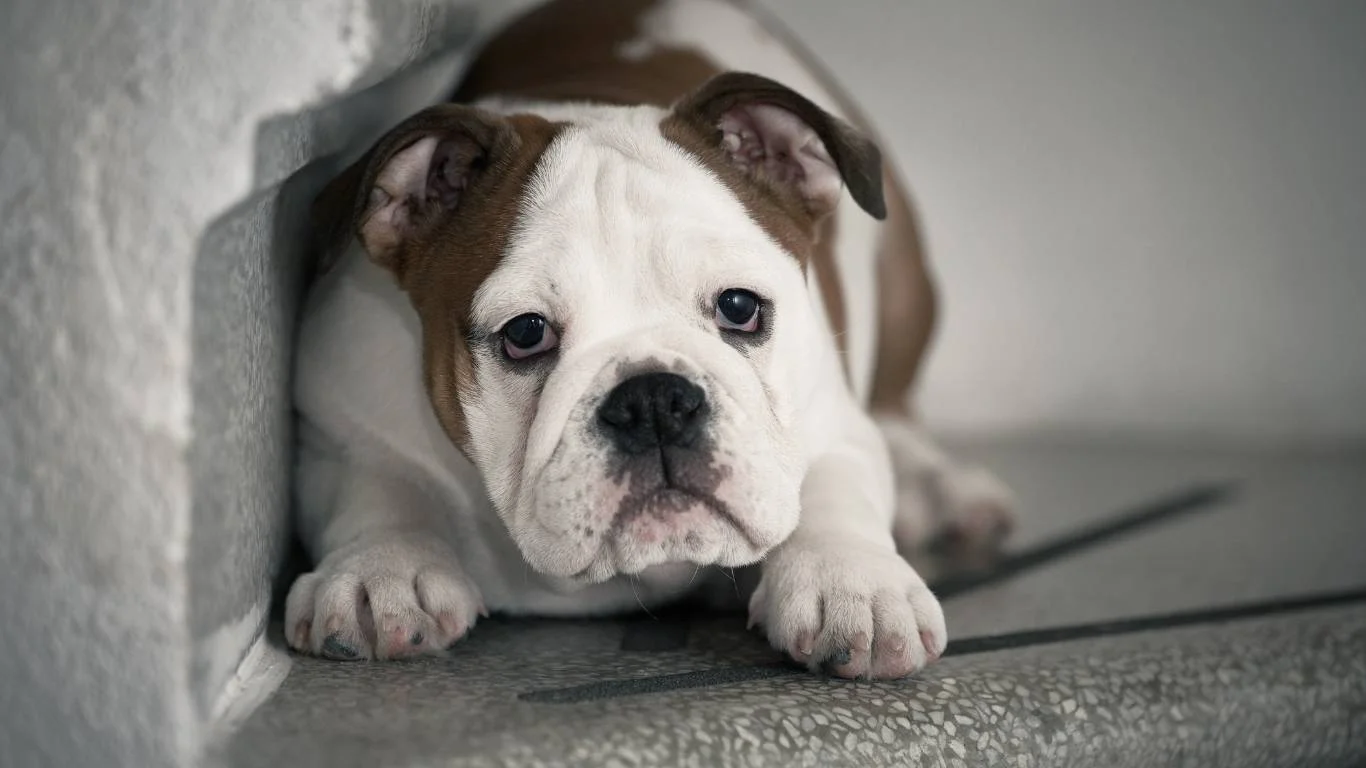
Maintaining a Healthy Weight
Being overweight can be a big contributor to bloating, as excess fat makes it harder for your dog’s digestive system to work efficiently. I’ve seen plenty of dogs that were more prone to bloating simply because they were carrying extra pounds. The good news is, this is a preventable issue! Maintaining a healthy weight for your dog can significantly reduce the risk of bloating.
Solution: Work with your vet to determine your dog’s ideal weight and ensure they’re eating the right amount of food for their size and activity level. If your dog is already overweight, gradual weight loss through proper diet and exercise will help ease the burden on their digestive system.
Exercise for Better Digestion
Exercise helps keep the digestive system working properly by promoting regular bowel movements and reducing stress, which can sometimes contribute to bloating. Regular exercise also helps your dog maintain a healthy weight, which, as we mentioned, plays a huge role in bloating prevention.
Solution: Aim for at least 30 minutes to an hour of exercise per day, depending on your dog’s breed and energy levels. This doesn’t have to mean intense runs or hikes every day—gentle walks or play sessions can be just as effective. Be mindful not to overexert your dog, especially if they’re older or prone to joint issues.
Conclusion (To Be Continued…)
Prevention is key when it comes to dog stomach bloating, and by following these tips—maintaining a healthy diet, monitoring your dog’s exercise routine, using supplements, and visiting the vet regularly—you’ll be setting your dog up for a long, happy, and bloat-free life. In the next section, we’ll dive deeper into more advanced strategies, including how to handle emergencies if your dog does experience bloating. Stay tuned!
What to Do in Case of Dog Stomach Bloating: Emergency Measures

Despite all the preventive measures, there may still come a time when you have to deal with stomach bloating in your dog. In those moments, staying calm and acting quickly can make all the difference. I’ve been in situations where pet owners recognized the symptoms of bloating early on, and their swift action saved their dog’s life. Let’s go over what to do in case your dog shows signs of bloating.
Recognizing the Symptoms of Dog Stomach Bloating
Before jumping into emergency measures, it’s crucial to understand the key symptoms of bloating. It’s easy to overlook early signs or dismiss them as something minor. However, bloating is a condition that can escalate very quickly, so catching it early is important.
The common signs to watch for include:
- Distended abdomen: The stomach may appear noticeably swollen, tight, or hard to the touch.
- Excessive drooling: This can be a sign of discomfort or nausea.
- Unproductive vomiting: Dogs may try to vomit but produce nothing or just foam.
- Restlessness or pacing: Your dog may seem agitated or unable to settle down.
- Rapid breathing: Difficulty breathing or panting heavily is a major red flag.
- Collapsed or weak appearance: In severe cases, bloating can cause shock, making your dog appear weak or lethargic.
If you notice these symptoms, especially in combination, it’s time to act quickly. The condition can rapidly worsen, leading to a life-threatening situation known as gastric dilatation-volvulus (GDV), which requires immediate veterinary intervention.
What to Do When You Suspect Bloating
If your dog is showing signs of bloating, here’s what you should do:
- Contact your veterinarian immediately: Time is of the essence here. Call your vet, or if it’s after hours, seek emergency veterinary care. The sooner treatment starts, the better the chances of saving your dog.
- Keep your dog calm and still: Avoid having your dog move around too much, as this can exacerbate the situation. Let them rest and try to keep them comfortable while waiting for help to arrive.
- Do not attempt to induce vomiting: Unless instructed by your vet, do not try to make your dog vomit. Bloating can cause twisting of the stomach, and inducing vomiting could make things worse.
In my experience, it’s always better to err on the side of caution. If your dog shows any symptoms of bloating, getting them to a vet immediately is crucial for a positive outcome.
Preventing Recurrence: Long-Term Solutions

Once you’ve successfully prevented an episode of bloating, it’s time to consider long-term solutions to reduce the risk of recurrence. This means making lifestyle and dietary changes that will ensure your dog stays healthy and bloat-free over the years. I’ve worked with many pet owners to create personalized plans that help keep bloating at bay for the long haul, and I’d love to share some of those strategies with you here.
Maintain a Consistent Feeding Schedule
One of the easiest ways to prevent bloating is by sticking to a consistent feeding schedule. Dogs thrive on routine, and this extends to their meals. Feeding your dog at the same times every day helps regulate their digestive system and reduces the chances of overeating or eating too quickly. I’ve seen dogs that are less anxious and experience fewer stomach issues when their meals are part of a predictable routine.
Solution: Set specific times each day to feed your dog, and try to stick to that schedule as closely as possible. This can also help you monitor their appetite and ensure they’re eating the right amount.
Consider Preventative Surgeries for High-Risk Breeds
In certain high-risk breeds, veterinarians may recommend preventative surgery to reduce the risk of bloating and gastric torsion. Known as a gastropexy, this procedure involves surgically attaching the stomach to the abdominal wall to prevent it from twisting. While not necessary for every dog, this surgery can be a lifesaver for breeds that are particularly prone to bloat.
Solution: If your dog is in a high-risk breed, consult with your vet about the possibility of a gastropexy. It’s something to consider, especially if your dog is older or has had prior issues with bloating.
References
For more detailed information on dog health and bloating, you can visit trusted resources such as:
Disclaimer
The information provided in this article is for general informational purposes only and should not be considered a substitute for professional veterinary advice, diagnosis, or treatment. Always seek the advice of your veterinarian or other qualified pet healthcare provider with any questions you may have regarding your dog’s health. Never disregard professional medical advice or delay in seeking it because of something you have read here.
Remember, when it comes to preventing stomach bloating and ensuring your dog’s overall health, staying proactive and informed is key. By following the advice shared in this article and working closely with your vet, you’ll be well on your way to keeping your dog happy, healthy, and bloat-free!


